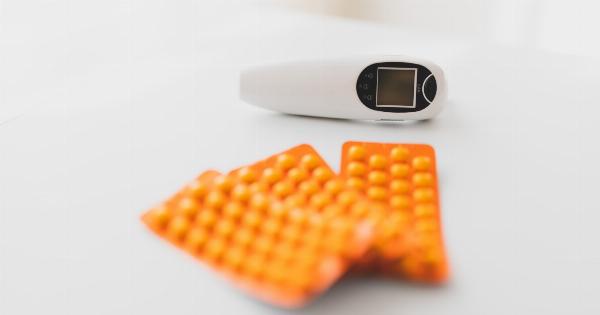Dealing with cold and sinus issues can be quite challenging and uncomfortable. Whether it’s a common cold, sinusitis, or allergies, these conditions can leave you feeling drained and irritable.
However, there are several cautionary measures you can take to alleviate symptoms, promote healing, and prevent further complications. In this article, we will discuss some effective strategies to help you manage cold and sinus problems and improve your overall well-being.
1. Stay Hydrated
One of the most important steps in combating cold and sinus issues is to stay hydrated. Drinking plenty of fluids, such as water, herbal teas, and clear broths, helps to thin mucus and drain congestion from your sinuses.
Additionally, staying hydrated helps to keep your respiratory tract moist, which soothes irritation and reduces coughing.
2. Use Saline Nasal Rinses
Saline nasal rinses are an effective way to relieve sinus congestion and reduce inflammation. You can use a saline rinse kit or make your own saline solution by dissolving half a teaspoon of salt in a cup of warm distilled water.
Rinsing your nasal passages with this solution helps to flush out mucus, allergens, and irritants, providing relief from congestion and promoting faster healing.
3. Apply Warm Compresses
Applying warm compresses to your sinuses can help to alleviate pain and pressure. Simply soak a clean towel in warm water, wring out the excess, and place it over your nose and forehead.
The warmth helps to increase blood flow, reduce inflammation, and promote drainage. You can repeat this process several times a day for relief.
4. Get Sufficient Rest
Rest is crucial when you’re dealing with cold and sinus issues. Adequate rest allows your body to focus on healing and recovery. Take the time to relax, sleep, and avoid overexertion.
When you give your body the rest it needs, you’ll have a better chance of recovering quickly and minimizing the severity of your symptoms.
5. Use Mentholated Products
Mentholated products, such as menthol inhalers or chest rubs, can provide temporary relief from nasal congestion and coughing. The cooling effect of menthol helps to soothe irritated nasal passages and reduce discomfort.
However, it’s important to use these products as directed and avoid excessive use.
6. Avoid Irritants
Irritants like cigarette smoke, strong perfumes, and cleaning chemicals can worsen your symptoms and irritate your nasal passages further. It’s essential to avoid exposure to these irritants as much as possible.
If you’re a smoker, consider quitting or limiting your smoking until your symptoms improve. Keep your living space well-ventilated and use natural cleaning products to minimize exposure.
7. Stay Away from Cold Air
Cold air can worsen symptoms and trigger nasal congestion. If you must go outside in cold weather, cover your nose and mouth with a scarf or face mask to warm and moisten the air you breathe. This can help reduce the risk of irritation and congestion.
8. Maintain Proper Humidity Levels
Dry indoor air can aggravate sinus issues and cause discomfort. Using a humidifier or vaporizer adds moisture to the air, helping to soothe your nasal passages and reduce congestion.
Aim for a humidity level of around 40-50% to create a more comfortable environment.
9. Practice Good Hygiene
Practicing good hygiene is crucial in preventing the spread of cold and sinus infections. Wash your hands regularly with soap and water, especially before eating or touching your face.
Avoid close contact with people who have cold symptoms, and ensure you cover your mouth and nose when coughing or sneezing to prevent the spread of germs.
10. Consider Over-the-Counter Medications
If your symptoms persist or worsen, over-the-counter medications can provide temporary relief. Decongestants can help reduce nasal congestion, while pain relievers can alleviate headaches and sinus pressure.
However, it’s essential to follow the recommended dosage and consult your doctor or pharmacist if you have any underlying health conditions or are taking other medications.




























